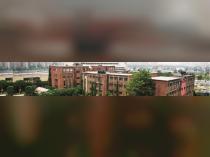How does the faculty's industry experience enhance the learning experience of students at IILM University?
-
1 Answer
-
The faculty's industry experience at IILM University plays a significant role in enhancing the learning experience for students. With a combination of academic expertise and practical industry exposure, the faculty members bring real-world insights and a hands-on approach to teaching, which significantly benefits students in the following ways:
Practical Insights and Case Studies: Faculty members with industry experience integrate practical examples, case studies, and current industry trends into their lessons. These real-life scenarios help students understand how theoretical concepts apply in professional settings, making the learning
...more
Similar Questions for you
Research is an essential component of the curriculum.
Psychology students are introduced to research methodology, including:
- Experimental and Non-experimental designs
- Sampling techniques
- Data collection methods
- Ethical considerations.
They often also conduct small-scale research projects involving surveys, behavioural observations, or case studies.
The first-year BBA curriculum at IILM University Gurugram is structured and engaging, but it is designed to be manageable and supportive rather than overwhelming, especially for students coming straight out of school. In the first year, you study core subjects like Principles of Management, Microeconomics, Business Communication, Accounting and basic Quantitative Techniques, spread across semesters with continuous internal assessments, projects and presentations instead of only high-pressure end-term exams. The workload includes regular classes, tutorials and group work, but faculty focus on concept clarity, case-based learning and ski
Yes, IILM University Gurugram's BBA is NEP 2020–aligned and does offer good flexibility along with multiple entry and exit options for students. The structure allows learners to choose multidisciplinary courses across different schools and decide their exit point as a Certificate after Year 1, Diploma after Year 2, Degree after Year 3 or BBA (Hons/Hons with research) after completing the full 4-year pathway. This means students can plan their journey according to their goals, finances or career plans, while still earning a recognised credential at each stage, making the programme student-centric and future-ready.
Yes, IILM University Gurugram's BBA is strongly aligned with technology, analytics, and contemporary business tools, so students do not study only textbook management but actually learn how modern businesses work in a digital, data‑driven environment.
The curriculum includes dedicated subjects and specialisations in areas like Business Analytics, Artificial Intelligence, Digital Marketing, and Management of Technology, ensuring that students are comfortable working with data, automation and tech-enabled decision-making from early semesters themselves. Along with core management courses, learners are exposed to tools such as SPSS, P
Yes!
- Excel is a must. We use it for analytics, finance assignments, and data exercises.
- SPSS is introduced in research-based subjects.
- Canva is used in marketing presentations and branding assignments.
- Power BI is introduced in some analytics electives.
These tools help a lot because companies expect BBA grads to know at least basic data and presentation tools.
Taking an Exam? Selecting a College?
Get authentic answers from experts, students and alumni that you won't find anywhere else
Sign Up on ShikshaOn Shiksha, get access to
- 66k Colleges
- 1.2k Exams
- 680k Reviews
- 1800k Answers

